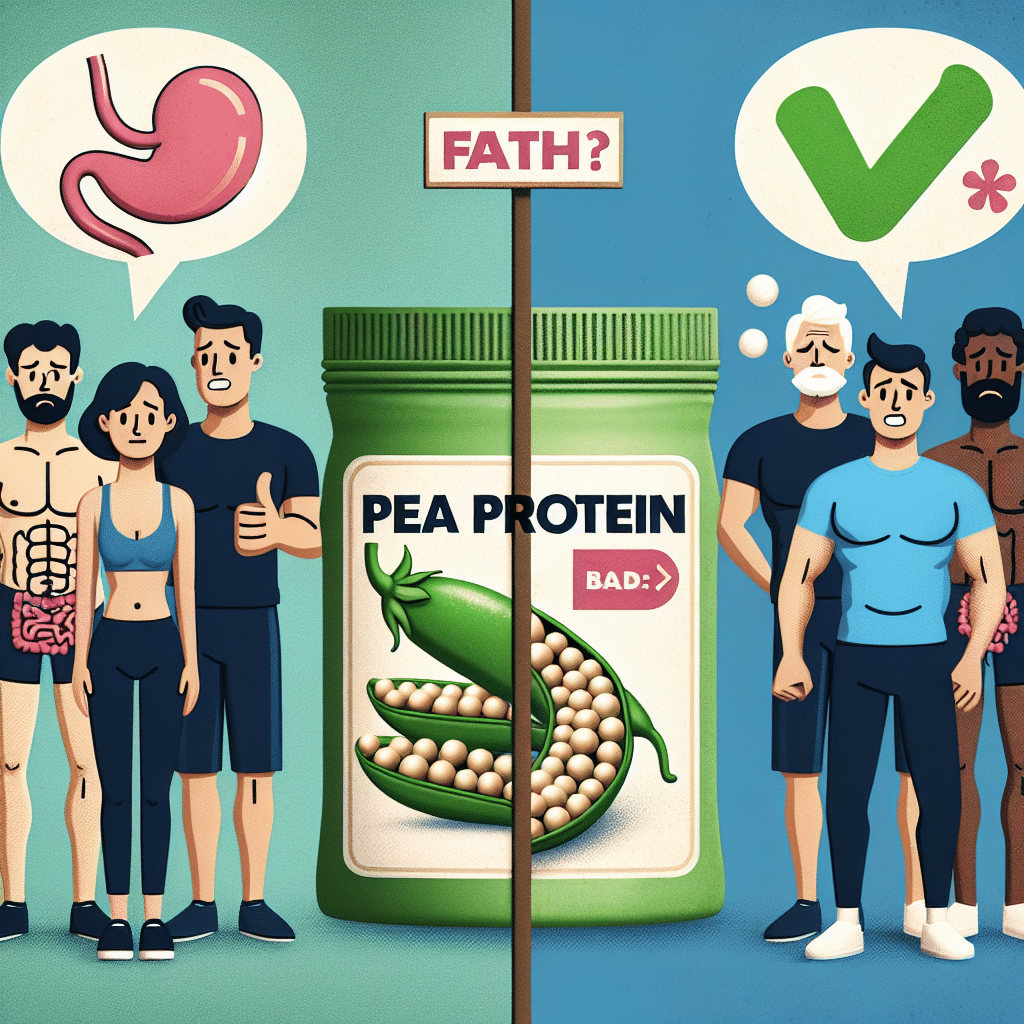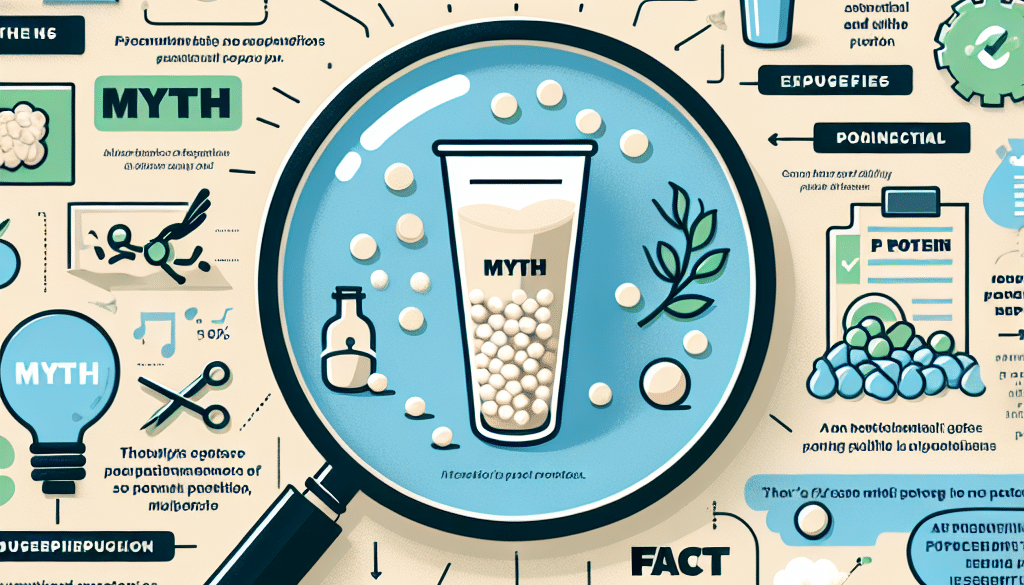Why is Pea Protein Bad: Myth or Fact?
-
Table of Contents
Why is Pea Protein Bad: Myth or Fact?

Pea protein has gained popularity in recent years as a plant-based alternative to animal-based protein sources. It is derived from yellow peas and is often used in protein powders, bars, and other food products. However, there have been concerns raised about the potential negative effects of pea protein on health. In this article, we will explore the claims made against pea protein and examine whether they are based on myth or fact.
1. Pea Protein and Digestive Issues
One of the main concerns raised about pea protein is its potential to cause digestive issues. Some individuals have reported experiencing bloating, gas, and stomach discomfort after consuming pea protein products. However, it is important to note that these symptoms are not exclusive to pea protein and can occur with any type of protein, including animal-based proteins.
Furthermore, pea protein is generally well-tolerated by most people. A study published in the Journal of Food Science and Technology found that pea protein had a low potential for causing gastrointestinal discomfort compared to other plant-based proteins like soy and wheat. The study concluded that pea protein is a suitable alternative for individuals with digestive sensitivities.
2. Pea Protein and Allergies
Another concern raised about pea protein is its potential to cause allergies. Pea protein is derived from yellow peas, which are a legume. Legumes, including peas, can trigger allergic reactions in some individuals. However, pea protein is processed in a way that removes most of the allergenic compounds, making it safe for consumption by individuals with legume allergies.
A study published in the Journal of Agricultural and Food Chemistry analyzed the allergenic potential of pea protein and found that the processing methods used in its production significantly reduced the allergenicity of the protein. The study concluded that pea protein is a safe and hypoallergenic alternative to other plant-based proteins.
3. Pea Protein and Nutritional Value
Pea protein is often criticized for its lower nutritional value compared to animal-based proteins. While it is true that pea protein does not contain all the essential amino acids in the same proportions as animal-based proteins, it is still a valuable source of protein.
Pea protein is rich in branched-chain amino acids (BCAAs), which play a crucial role in muscle growth and repair. It also contains a good amount of arginine, an amino acid that promotes cardiovascular health. Additionally, pea protein is low in fat and carbohydrates, making it an excellent choice for individuals looking to increase their protein intake without consuming excess calories.
4. Pea Protein and Environmental Impact
One of the main reasons why people choose pea protein over animal-based proteins is its lower environmental impact. Animal agriculture is a significant contributor to greenhouse gas emissions and deforestation. Pea protein, on the other hand, requires fewer resources to produce and has a lower carbon footprint.
A study published in the journal Nutrients compared the environmental impact of pea protein and whey protein, a popular animal-based protein. The study found that pea protein production resulted in significantly lower greenhouse gas emissions, land use, and water consumption compared to whey protein production. Choosing pea protein over animal-based proteins can help reduce the environmental impact of our food choices.
5. Conclusion
Based on the available evidence, the concerns raised about pea protein appear to be more myth than fact. Pea protein is generally well-tolerated, hypoallergenic, and provides valuable nutritional benefits. It is a sustainable and environmentally-friendly alternative to animal-based proteins.
While some individuals may experience digestive issues or allergies when consuming pea protein, these reactions are not exclusive to pea protein and can occur with any type of protein. It is always important to listen to your body and consult with a healthcare professional if you have any concerns or pre-existing conditions.
Overall, pea protein is a safe and nutritious option for individuals looking to incorporate more plant-based proteins into their diet.
About ETprotein
ETprotein, a reputable protein Chinese factory manufacturer and supplier, is renowned for producing, stocking, exporting, and delivering the highest quality organic bulk vegan protein and plant proteins. They include Organic rice protein, clear rice protein, pea protein, clear pea protein, pumpkin seed protein, sunflower seed protein, mung bean protein, etc. Our offerings, characterized by a neutral taste, non-GMO, allergen-free attributes, cater to a diverse range of industries. We serve nutraceutical, pharmaceutical, cosmeceutical, veterinary, as well as food and beverage finished product distributors, traders, and manufacturers across Europe, USA, Canada, Australia, Thailand, Japan, Korea, Brazil, and Chile, among others.
Our specialization includes exporting and delivering tailor-made protein powder and finished nutritional supplements. Our extensive product range covers sectors like Food and Beverage, Sports Nutrition, Weight Management, Dietary Supplements, Health and Wellness Products, and Infant Formula, ensuring comprehensive solutions to meet all your protein needs.
As a trusted company by leading global food and beverage brands and Fortune 500 companies, ETprotein reinforces China’s reputation in the global arena. For more information or to sample our products, please contact us and email sales(at)ETprotein.com today.














